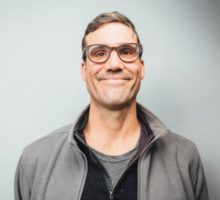Caring for Those Who Care for Us: Nursing in the Time of COVID-19
COVID-19 has impacted our nursing population in two significant ways. First, it has exposed an increased demand for more highly-trained professionals to handle the needs of struggling medical facilities, which puts added pressure on those already working in the field. It has also added extra challenges to the next generation of practicing nurses as they graduate and seek out the experience and proper licensing necessary to enter the job market and give care to the growing number of those afflicted with the virus. Of course, our global focus on the virus compounds the ongoing attention required by other serious illnesses.

Now more than ever, we are asking a lot of nurses, given their responsibility not only to help keep patients alive but also to care for themselves by attending to their own physical and mental health along the way.
While restrictions have limited all nursing programs, students attending school in Texas are fully participating in their hands-on, clinical schooling. They are capable of getting the full benefit of lab work and practical applications found in first-hand experiences.
Danielle Walker is an assistant professor specializing in nursing education at the TCU Harris College of Nursing and Health Sciences. Walker has observed how the coronavirus pandemic has shifted the program’s focus. “Our students are still able to have their typical clinical experiences, but we’re all dealing with differences in the way hospitals function. One of our program’s big things has been wellness for our students, especially our graduate students, because they are going out into a changing environment. A nurse’s wellbeing impacts the quality of care they are able to deliver.”
As students seek clinical placements to gain essential experience, they are encouraged to develop self-care patterns like yoga and meditation. Walker said, “We’ve had to create creative opportunities for connection because our younger students are spending so much more time online.”
One of those creative measures was the delicious exercise of baking bread, a practice many have engaged in during the homebound period of lockdown. “It is a task that uses mental capacity and allows them to use their minds differently. One of the things that’s hard for our students to understand is that they often don’t see what happens with a patient after a 10- or 12-hour shift has concluded.” The students were able to share the final products throughout the School of Nursing, “I think it tasted like home.”
Walker says that they have been lucky to send students to hospitals for clinical practice. “It is an extra step for those hospital nurses to teach our students and explain what they are doing in an already–stressful climate.”

One of those nurses working in the field and shepherding a student is Nicole Frederick. Graduating with her Doctor of Nursing Practice, or DNP, from TCU in 2019, Frederick has been a Clinical Nurse Specialist focused on trauma care with Texas Health Resources for just over a year. The DNP degree allowed her to impact her hospital positively for the nurses who rely on her guidance. “I wanted to take my knowledge and effect change over a broader scope, rather than just my two patients,” Frederick explains.
The online format of the DNP program allowed her to continue working. The small classes gave her the tools she needed to succeed. No longer at the bedside, Frederick deals with trauma administration where 15 and 25 patients are seen every day. Nurses are responsible for completing an assessment and following patients through their course of treatment to oversee the quality of their care and improvement.
Frederick also acts as a mentor to a current student in the program, a Family Nurse Practitioner with whom she speaks frequently. “Every DNP student has a mentor, usually at the same facility, to see you on the fly.” Her instruction includes sharing information about facility norms and her insight into the process’s good and bad elements.
In much the same way those students mentioned above transformed dough into bread, one generation of nurses looks out for the next to develop skills through the TCU Nursing program.
Frederick notes that since the onset of the pandemic, she has frequently received supportive messages from the educators she worked with during her four years in the program. “My old professors from TCU have been asking if I have all I need to be safe.”
Nurses handle highly intense situations and must remain flexible to adjust things as needed while lives hang in the balance. Frederick said, “We know COVID surges are coming now. There will always be challenges, but procedures and workflow are all now in place.”
 An Austin native, Lyle Brooks relocated to Fort Worth in order to immerse himself in the burgeoning music scene and the city’s rich cultural history, which has allowed him to cover everything from Free Jazz to folk singers. He’s collaborated as a ghostwriter on projects focusing on Health Optimization, Roman Lawyers, and an assortment of intriguing subjects requiring his research.
An Austin native, Lyle Brooks relocated to Fort Worth in order to immerse himself in the burgeoning music scene and the city’s rich cultural history, which has allowed him to cover everything from Free Jazz to folk singers. He’s collaborated as a ghostwriter on projects focusing on Health Optimization, Roman Lawyers, and an assortment of intriguing subjects requiring his research.


 Sign in
Sign in

